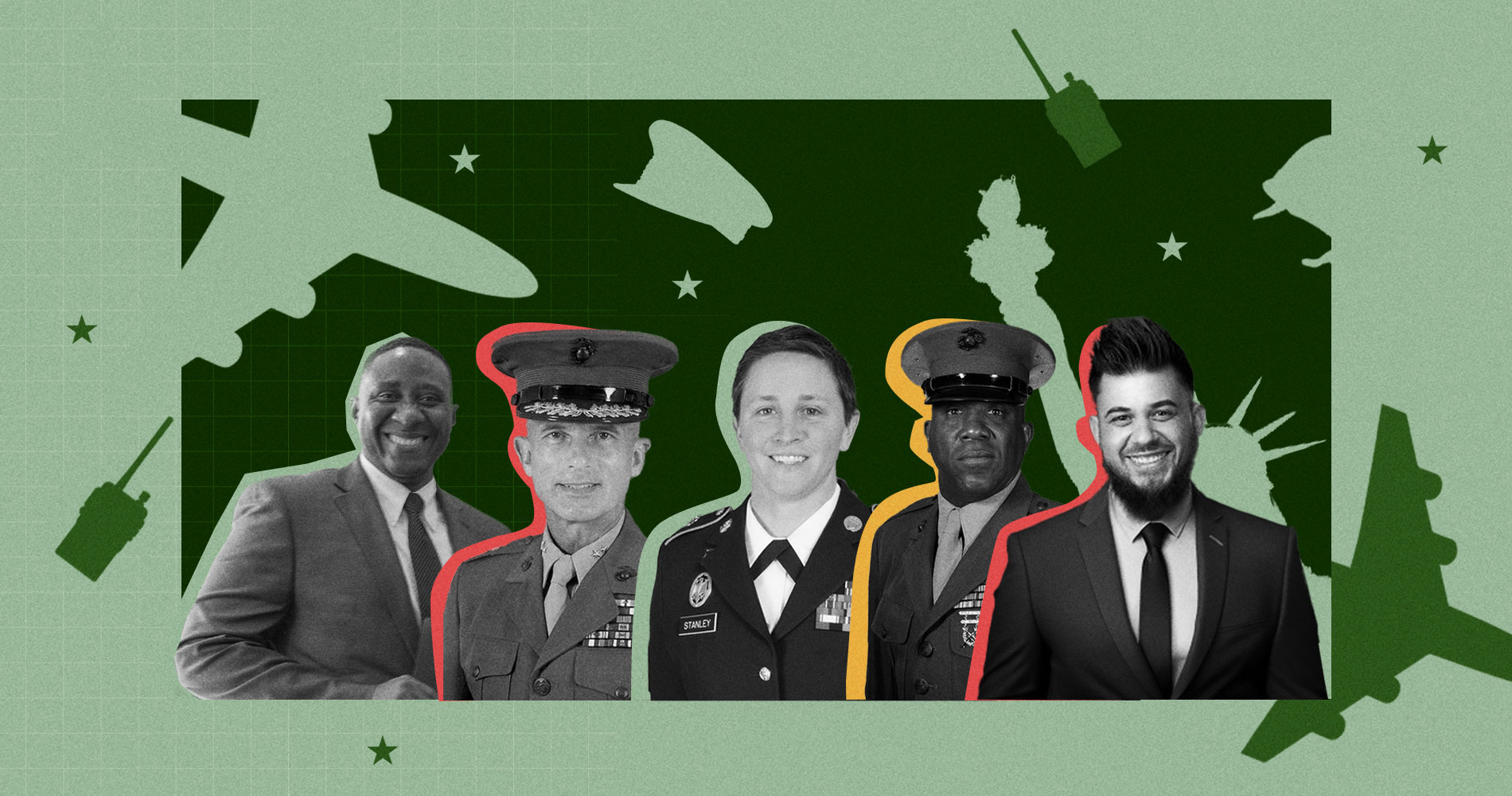
A one-of-a-kind Microsoft program prepares military members for success in the tech industry
She was freshly back from Kuwait, her final deployment. She had just retired from a 14-year U.S. Army career. Her master sergeant stripes were gone. Now, to take her uneasy first steps into civilian life, Lisa Stanley picked the safest of safe spaces – her childhood bedroom in West Virginia.
It was early 2022 and Stanley had just enrolled in the Microsoft Software and Systems Academy (MSSA), a full-time training program that teaches military veterans and transitioning service members the critical skills to compete for tech jobs.
She was 39 and going through a divorce. But with her laptop perched on the standup desk she’d bought from Office Depot, Stanley got to work.
During MSSA’s remote, 17-week program, she soaked up the academy’s live instructions, virtual labs and real-life application scenarios. She took on opportunities to obtain industry-recognized certifications.
But what truly pulled Stanley to the edge of her seat were the virtual presentations by MSSA graduates who hold tech jobs at big-name companies.
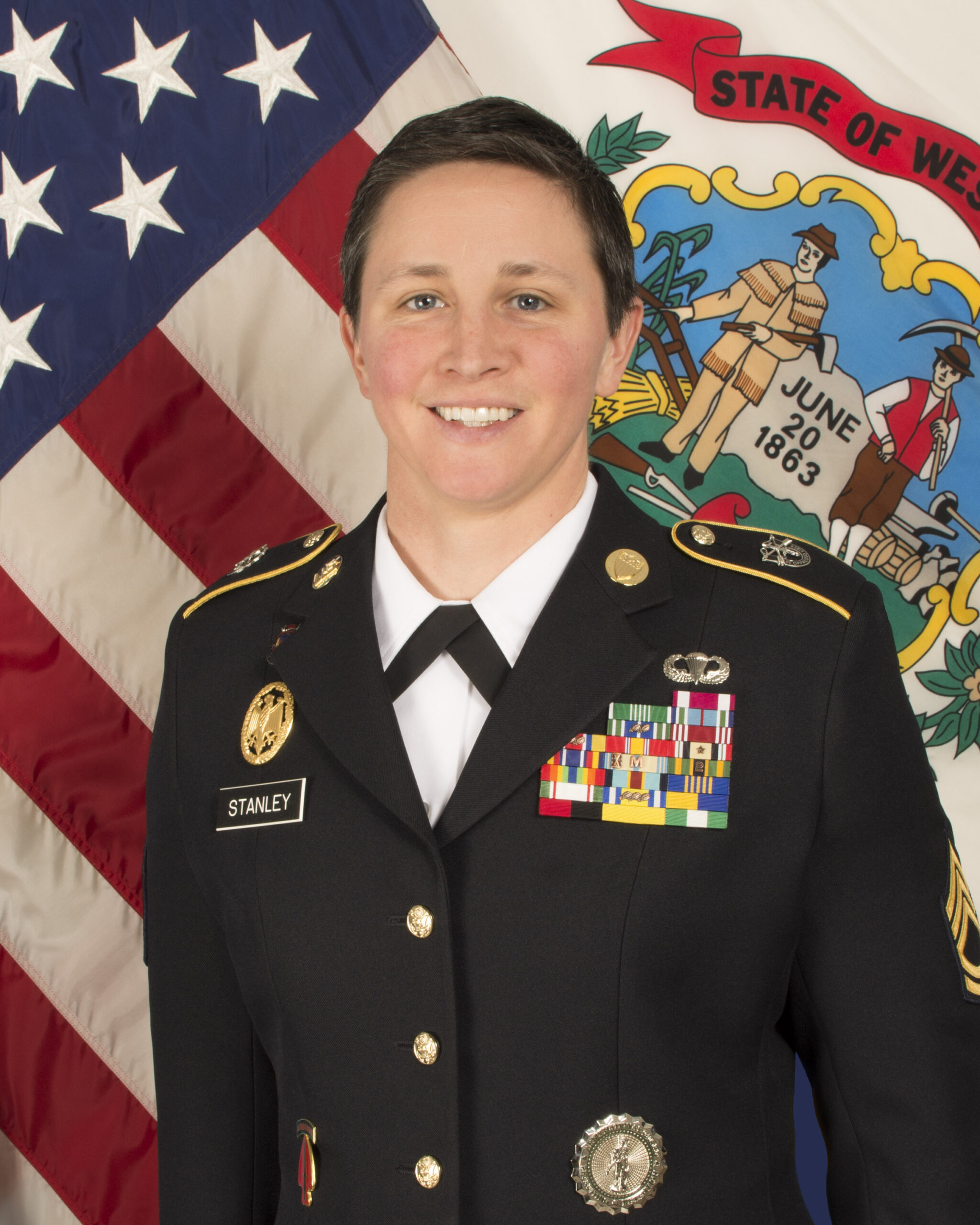
“Those moments left me seeing myself in these roles as a viable path forward,” Stanley says. “Prior to this, I would feel uncertain whether someone like me fit into tech organizations. But the opportunity to hear candidly from these other veterans enhanced my confidence that I could do this, too.”
After all, those MSSA grads had taken the same leap of faith she was now facing – a jump into the unknown where private sector opportunities awaited, as did countless questions for new veterans. Questions like: How do I translate my military expertise into a civilian job? Can I find the same sense of belonging I had in my unit? Where will I go next? And how will I get there?
“All the insight, the social support and the network opportunities provided by MSSA helped chip away at that self-doubt week by week,” she says. “Before MSSA, you might feel like an outsider in tech. But when you hear from other MSSA graduates and veterans who successfully transitioned, it helps you remove that psychological barrier to entry.”
Stanley graduated from MSSA in May 2022. Three months later, she had four job offers. She chose Southwest Airlines, working as a Scrum master with software development teams. A year later, she accepted a job with Aptive Resources, a federal government services agency in Alexandria, Virginia. Promotions followed. Today, she works there as a deputy program manager.
Stanley’s story – from doubt to decisiveness – is not uncommon among the ranks of MSSA alumni.
Check out the numbers:
- Since MSSA was launched in 2013, more than 3,900 veterans have graduated from the program, many from one of the academy’s currently offered learning paths: cybersecurity operations, server and cloud administration, or cloud application development.
- The program posts a 94% graduation rate and 97% of those grads are employed today.
- Among MSSA grads, 90% are employed in the tech industry.
Now the kicker: More than 1,000 companies, including Microsoft and Microsoft partners, have hired talent from the MSSA pool.
A one-of-a-kind foothold in life after service
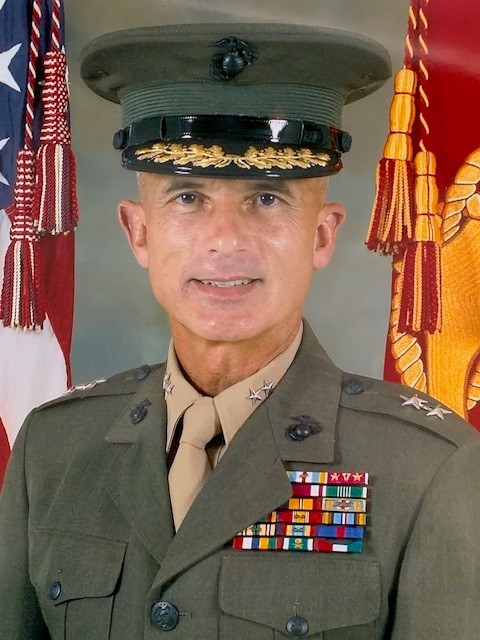
Chris Cortez knows Stanley’s arc all too well. The 33-year veteran of the Marine Corps finished his service as a two-star general in 2004 but struggled to find a foothold in post-military work. After joining Microsoft in 2006, he met with a fellow veteran in human resources to discuss strategies to help veterans transition to civilian life.
Those conversations became the genesis of MSSA, which launched in 2013 as a pilot program at Joint Base Lewis-McChord in Washington state.
“Because it was our first group and because there was so much excitement, there were a lot of organizations, especially in Washington state, that were willing to interview them and it turned out the entire group was hired,” Cortez recalls. “And so we had a five-year plan ready to go, to open this program over the course of five years and we would work our way across the country.”
As the plans for MSSA expanded, Cortez realized it would take some restructuring to ensure its long-term success and suggested that Microsoft create a military affairs team to help with oversight of MSSA.
“In July 2014 there was an all-hands email saying we’re starting military affairs and Chris is going to run it,” recalls Cortez, now Microsoft’s vice president of Military Affairs. “Microsoft embraced this program. There’s no other program like this in the world. This is one-of-a-kind. And for the technology industry, nobody else is doing what we’re doing.”
For Frankie Beauchamp, MSSA was an opportunity to get his foot in the technology sector without any previous background in IT. The 2023 graduate had previously explored career paths in other fields but was drawn to tech because of its stability. He says MSSA helped fill the gaps in his knowledge and gave him a real idea of what working in the field would be like.
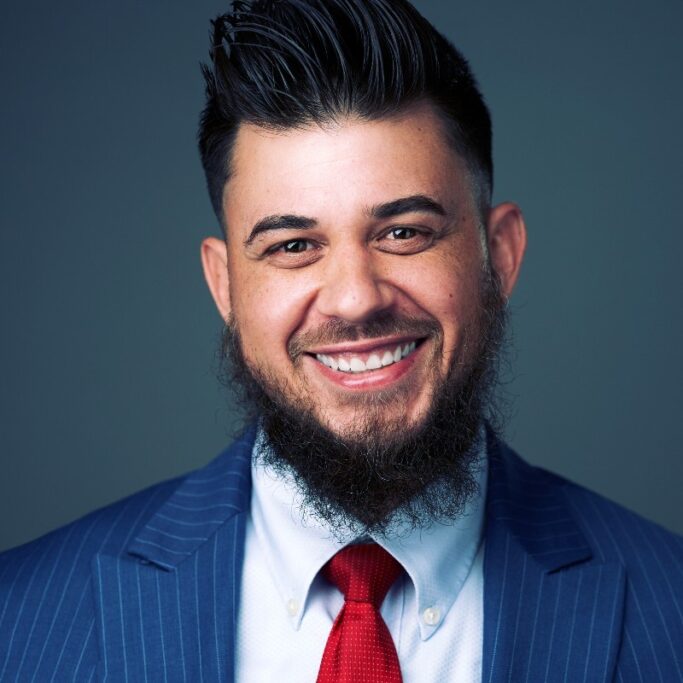
“There’s no video question dump or prep out there that’s going to give you what this program gives you,” says Beauchamp, who is now a cloud support technician at cloud services company Atmosera. “Depending on what program you go into, it’s going to give you the most hands-on, up-to-date know-how that takes you from zero to three or four years of experience in a four-month time frame. In interviews, you’re going to be able to reference and talk about things that people don’t have any idea exists.”
From the front line to the back office
More than 40 companies have hired 10-plus graduates from the MSSA program, including Southwest Airlines, which has hired nearly 50 MSSA graduates to work in technology positions throughout the company.
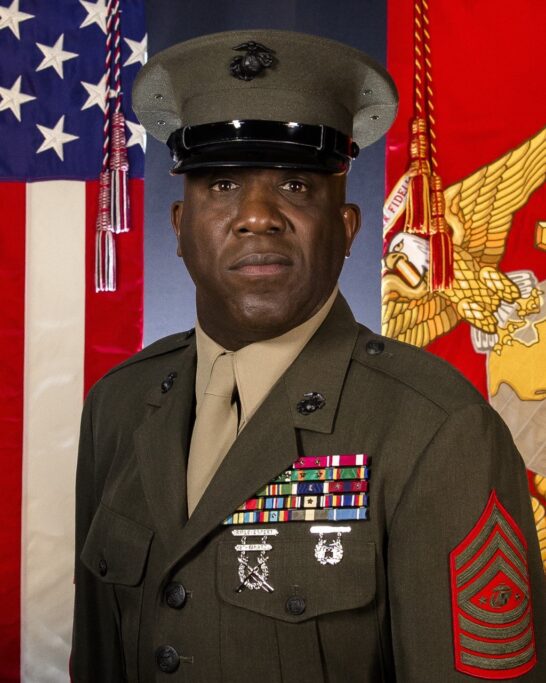
Sgt. Maj. Ron Green, a 36-year veteran of the Marine Corps and a senior manager on the IT architecture team at Southwest, has been an advocate for MSSA for years and helps recruit program graduates through Southwest’s Warrior Hire Program. He says the backgrounds of MSSA graduates and military personnel in general make them great hires in the civilian world.
“Military personnel, it’s what we bring to the table, right? It’s all those traits and principles that have been honed into us,” Green says. “Leadership, dependability, tact, judgment, justice, courage, unselfishness. And when you transfer that over to the civilian side of the house, that language, it equals people showing up on time, people treating others the way they want to be treated, people taking their job seriously, being on time, being good team players.”
Many of the MSSA participants cited job fairs and engagement with career development managers as a key element of the program. Hyppolitte Djouda, a health care specialist in the Army, joined MSSA after he completed his contract with the Army in 2019, hoping to enter the software development field. Upon completing the program, getting face time with potential employers was an important way to show off both the knowledge and professional development skills he gained in MSSA, such as how to effectively interview and translate his military experience to a non-military audience.
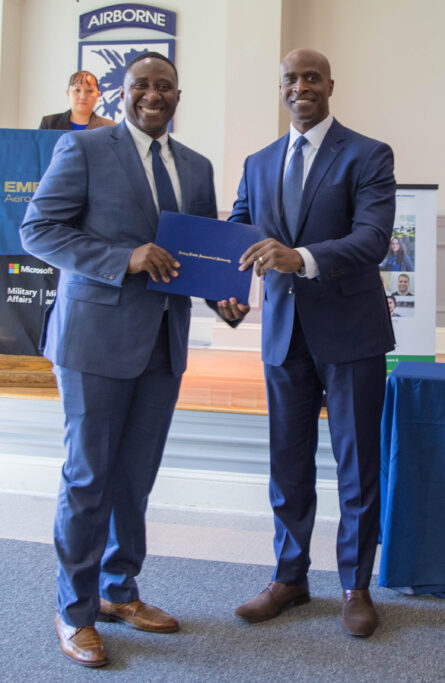
“When I was in the program, we had two or three virtual job fairs where hiring partners would come and talk to us,” Djouda says. “It was putting that basic connection together – the veteran with the employment resources. This is how MSSA put me together with my company. I did have multiple offers and with all the soft skills I learned from the program, I was able to judge which offer was better and which way to go.”
“I feel like I’m still helping the DOD, the Army, the Marines, the Navy,” Djouda adds about his job with TIAG, a Virginia-based technology company. “But it’s in the background now, because what I do is for the medical readiness of the soldier. So I am not in the field or in the front line, but in the back end helping soldiers.”
Responding to the call of duty
That sense of duty, of helping a fellow veteran, lies at the heart of the MSSA program. From Cortez pushing to create a groundbreaking training apparatus and enlisting fellow military leaders like Green for help bringing other companies on board, to graduates keeping an eye out for positions that would fit the next cycle of graduates, the sense of teamwork and camaraderie fostered by the military doesn’t disappear in the civilian world.
“Anytime there’s been a position available, I post into the MSSA alumni group,” Beauchamp says. “And I try to help with any kind of questions they have about the company. The three most recent hires (at Atmosera) from MSSA were from my posts. I’m always trying to help out with that.”
Cortez has experience with thousands of military members throughout his career in the service. He’s also been among thousands of technology workers and executives. He’s confident that MSSA provides everything for the former to become the latter and thrive in their new working life.
“I know that these people have a lot to offer, but that they don’t necessarily have a path right now,” Cortez says. “And I know that if I can help them with an opportunity to develop, they will excel. I tell them that in 17 weeks, they’re not going to be the same. In 17 weeks, they’re going to be so much more capable, and ready, for the moment.”
More than 10 years and 3,900 graduates later, Cortez is beginning to see the fruits of his labor bloom in places that the graduates might not have believed but that he always knew was inevitable because of their talent.
“We are starting to see our graduates in the meetings we have with our industry and government customers,” Cortez says. “They’re getting hired into different companies and we’re starting to see them in our engagement. Every time that happens, I share it with my team. It’s pretty cool.”

